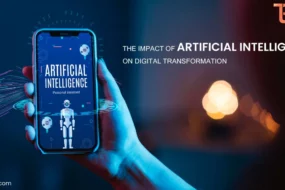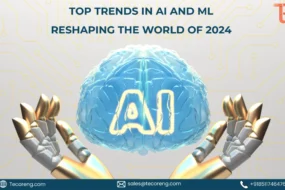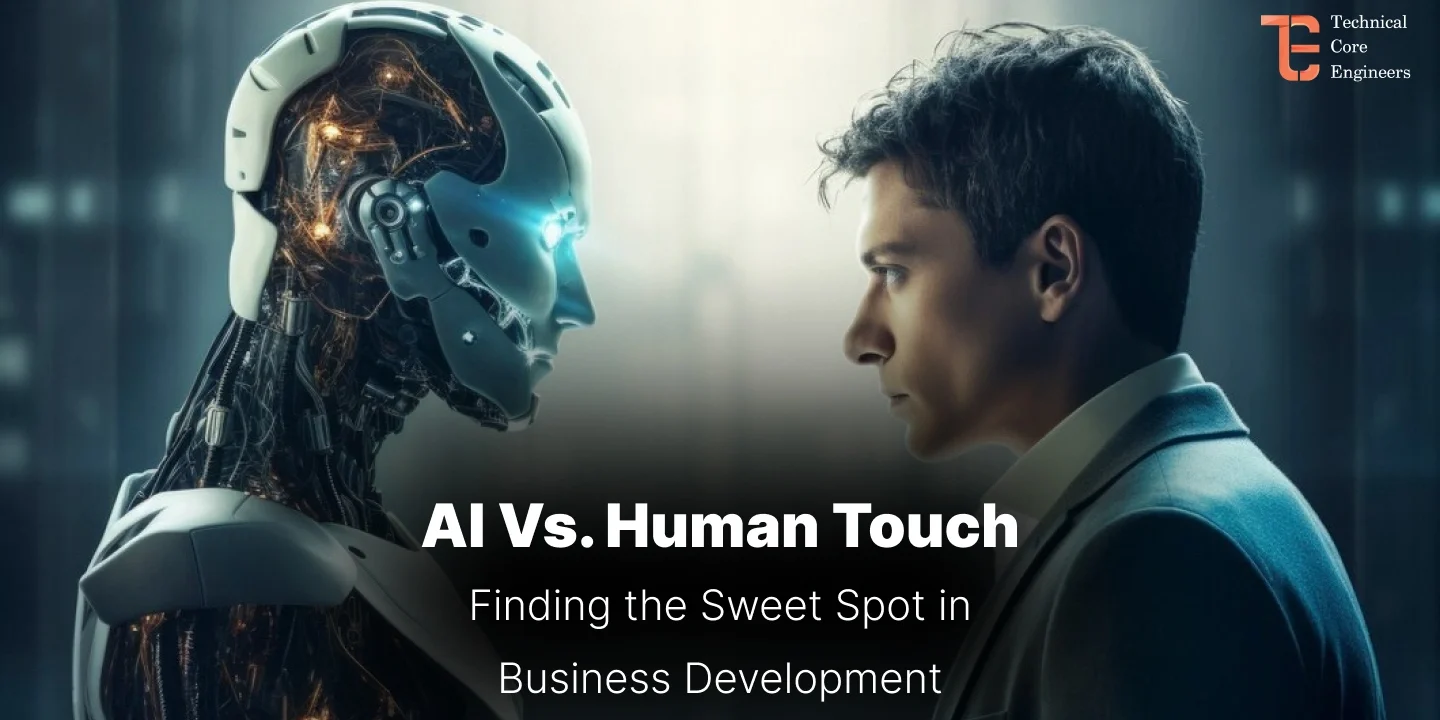
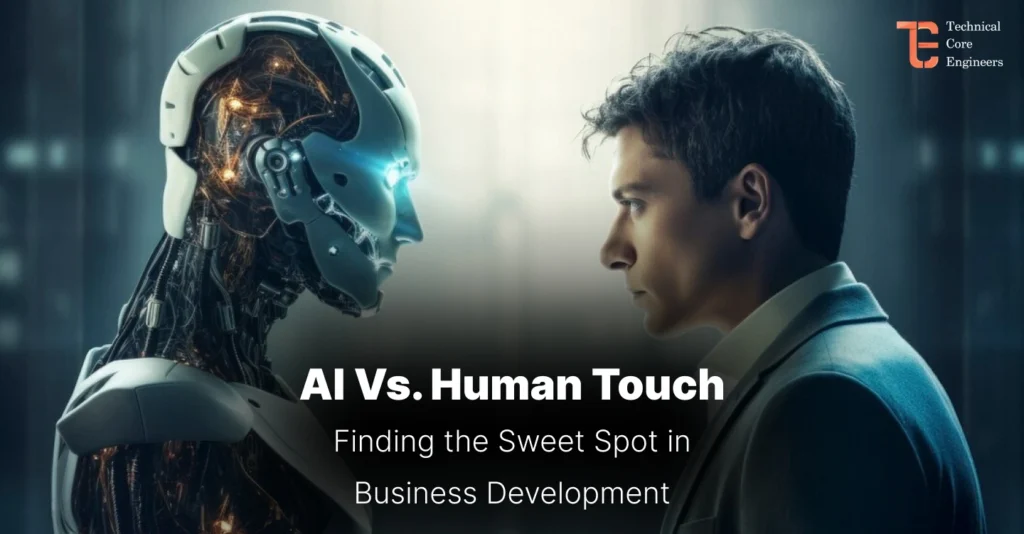
Business development relies on connections—getting the right people, building relationships, and eventually forging opportunities that produce growth. However, with the current interest in AI, things are changing. AI can automate tasks and process vast amounts of data and insights faster than any human.
Can it replace the human touch? Not really. Today’s secret to success in business development is choosing neither; instead, it is to know how to blend the efficiency of AI with human relationship-building.
AI Impacting Business Development
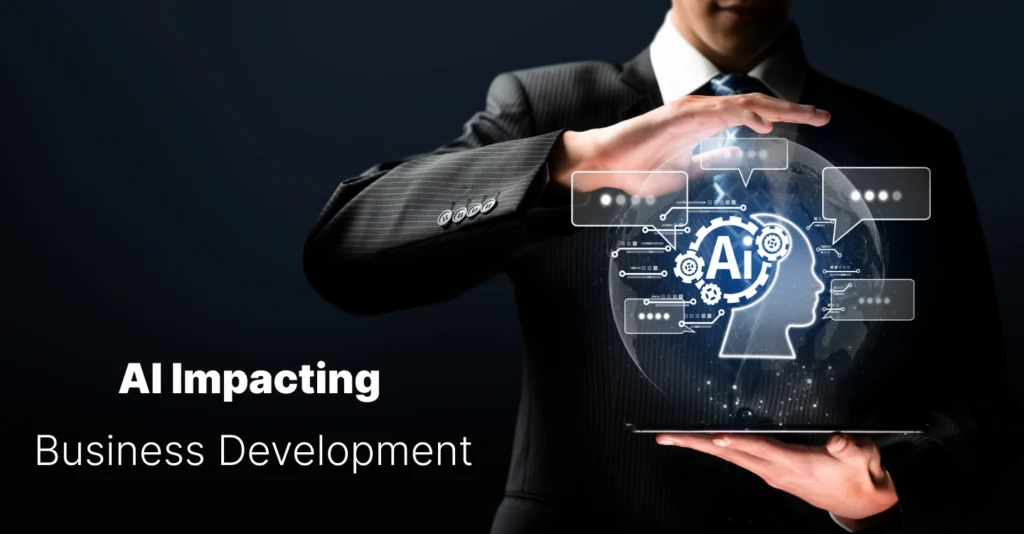
AI helps speed up business development and aptly enhance data-backed activities for the work done poorly until now. Here is where it is coming into play:
1. Smart Lead Generation and Qualification
Cold calling every name on the list is in the past. AI apps such as LinkedIn Sales Navigator, HubSpot, and Salesforce study online activity, market data, and past interactions to identify and qualify the potential best-fit and most promising prospects. This smart qualification allows business development teams to concentrate their efforts on leads with actual potential.
2. Forecasting Customer Wants
AI does not just answer questions; it anticipates wants. With study into customer behavior, prior purchases, and interaction patterns, AI enables firms to forecast what customers need next. This way, firms can prepare rather than react, getting ahead of their competition.
3. AI Chatbots and Virtual Assistants
Wouldn’t it be great if chatbots were capable of really addressing our questions without alienating their patrons? Thanks to technology revolutionized by AI, simple yet important virtual assistants are fueling and enhancing knowledge in standard customer transactions, service requests, general inquiries, and appointment scheduling. This then allows business development to focus on more higher-value interactions needing a considered human touch.
4. Customer Engagement in a Personal Manner
AI puts companies in a position to send out the right message to the right customer at the right time. AI powers CRM technologies that observe customer interactions and send hyper-personalized emails, product recommendations, and follow-ups. The result? Customers feel almost known by the company, even in the absence of the human touch.
5. Automating the Repetitive Tasks
AI performs the highly repetitive administrative tasks such as data entry, calendar management, and follow-up messaging so business development can do more of what counts: nurture relationships and close deals.
6. Competitive Intelligence
AI measures competitor pricing, market activity, and customer feedback with real-time updates. This lets enterprises stay ahead, adapting their strategy to align with what is happening on the market.
7. Maintaining Customers with AI
It is, of course, easier to keep an existing customer than to acquire a new one. With the help of AI, a customer can easily be detected as “at-risk” and be suggested individual retention methods.
While artificial intelligence is becoming more dominant in today’s world, the human touch remains critical in business development.
Here are the reasons why human interactions really cannot be substituted for:
1. Genuine Relationship Building and Trust
Business development is fundamentally about relationships. While AI can lend a helping hand as a conversation initiator, the trust and rapport-building must be done through human interactions. Face-to-face meetings, personalized emails, and meaningful conversations create long-term partnerships.
2. Reading Client Emotions and Needs
While AI can read the data, it does not understand human emotions, the nuances of communication, and concerns. Business development executives are great at receiving an understanding of client pain points, empathizing with their challenges, and providing solutions based on those needs.
3. The ability to persuade and negotiate successfully
More than numbers and automation are needed to consummate the deal. Negotiators who are experts in persuasion methods will bring emotional intelligence and flexibility into some of the most complex business talks with an edge that AI could never rival.
4. Artificial Intelligence Lacks Creativity
The human mindset is about creative problem solving—time-tested with myriad examples available—that create solutions that diverge from classical thinking and are uniquely catered to the needs of our clients.
5. Social and Cultural Dynamics
Business development means much more than just selling; it comes with the demand for knowledge of cultural norms, business etiquette, and socially dictated behavior across various industries and geographical areas. A human touch can ensure that all those elements cross safely.
6. Storytelling and Brand Advocacy
Humans have the capacity to enrapture an audience with storylines, recount their experiences, and breathe life into a brand. AI can provide data-driven insights, but humans inject the fervor and spirit necessary to garner the attention of prospective clients.
7. Ethical Decision Making in Ambiguous Contexts
AI uses algorithms and data to carry out machine-based actions, but it is the ethical judgment of human beings that intervene in business decisions. Some scenarios demand moral reasoning along with an understanding of business ethics that AI simply cannot measure up to.
Finding the Balance: AI with the Human Element
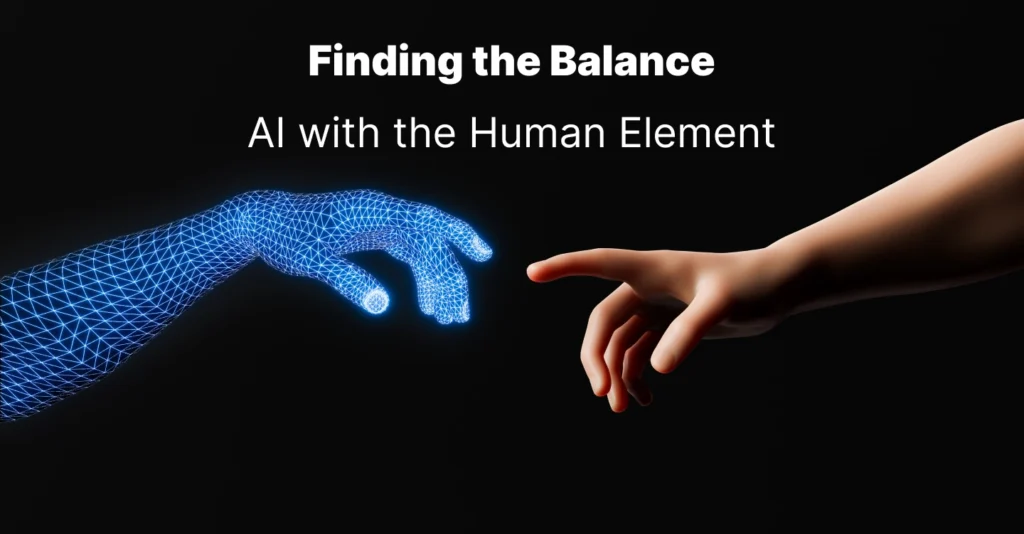
Instead of positioning AI and human elements as opposites, the business narrative should balance both for maximum success. Here is how organizations can attain a balanced approach:
1. AI for Data and Insights
AI is exceptionally good at collecting data and extracting meaningful trends from it. It should be the duty of business development teams to use these insights gained by AI to steer their strategy, while human interpretation and execution should come into play.
2. Let AI Handle Routine Stuff While Keeping Clients Human
Every portion of a regular process—from scheduling meetings to sending follow-ups to generating reports—should be on autopilot, allowing business executives to concentrate on the client interaction that really deserves a human touch.
3. Making Personalization an Extensible Support with AI
While AI does analyze customer data, the insights ought to be personalized in human communication. A sales representative who knows the preferences of a client would define an interaction with their approach, therefore meaningfully enriching the conversation.
4. Have Human-Centered Negotiation and Relationship Management
AI may suggest from the data, but the final say, negotiations, and long-term relationship-building will remain in the hands of humans. Trust is created by people interacting with people.
5. Create Training for Business Development Professionals to Work Together with AI
Companies, therefore, should invest in training so that the business development organization can learn to make good use of AI tools while also emphasizing soft skills that bring strength to client relationship development.
6. Put Down an Ethical Framework for AI
Companies must offer an ethical framework for implementing AI to guarantee fairness and transparency while being compliant with their respective industry regulations while creating a mechanism for human oversight.
7. Have a Customer-Centric Hybrid Approach
Companies ought to develop a hybrid business development model whereby humans will build the strategy for relationship development and personalized interactions with clients, whereas AI will manage all operational stuff.
Closing Thoughts
There’s no arguing that AI is shaping business development by inducing efficiencies, scalabilities, and predictability. Yet, the must-have in all these instances remains the human element, which is one regarded as trust, relationship, or negotiation at a complex sale. A combination of AI-driven automation and human expertise can arm businesses with a compellingly capable business development strategy for the sake of longevity. Where lies the key: an optimal balance between AI and human contributions to facilitate sustainable growth in the digital era.
In the technology-waged world, companies that embrace both AI and the human side of emotional connection will have the competitive edge. The future of business development is not AI versus people; it is AI plus people for innovation and efficiency and ultimately meaningful relationships with clients.




